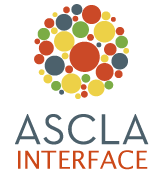Michael Golrick (incoming ASCLA President-Elect)
Head of Reference and Library Consultant, State Library of Louisiana
December 2008-Present
Tell us about your present job and your experience at SLOL.
I was hired at the State Library of Louisiana as a Library Consultant to be the State Data Coordinator and generally provide advice to public libraries. I started on December 1, 2008. In the fall of 2009, I was offered the opportunity to become the Head of Reference. I kept the State Data Coordinator tasks, and added the Reference responsibilities. The State Data Coordinator tasks include collecting the data from the public libraries in the state and submitting them to the Institute of Museum and Library Services (IMLS) via the Census Bureau. I am now about halfway through a three year term as a member of the Library Statistics Working Group which, with some of the State Librarians, advises IMLS on the data collection process. The Reference Department (there are three of us) provides direct reference services to the general public and state employees as well as serving as secondary reference providers for public libraries in the state.
When and how did you find yourself on a “state librarianship” track? Happy accident, clear pathway, or somewhere in between?
I wound up at SLOL by accident. Prior to working here, I was a public library director in Wisconsin and Connecticut. Even prior to that, I was a reference librarian in Connecticut and Arizona. I also spent some time as the head of a multi-type library consortium in Connecticut. In those positions I became familiar with state libraries. The state library agency in each state is very different. There are differences in roles (what is included and what is not), and in the relationship between the public libraries and the state library. It has been an interesting journey.
For those less familiar, explain how working at a state-level library may differ from other public library environments.
Some of it is perspective. At the State Library of Louisiana, we have a public which can walk in, and we serve them much like a public library does. We face all of the same issues of an urban library serving the general public. We also serve state employees doing their jobs, and finally, we serve the staff at public libraries. We have some of the same issues as public libraries—serving the public and our primary clientele of state employees, but we also serve libraries and librarians.
The training which I am involved in is for library employees—not the general public. We also have to keep in mind what will work for both the smallest libraries and the largest ones. We try to provide services which will help all of them.
In Louisiana, part of our federal funding provides all Louisiana citizens with database access. So we have to keep that really big picture in mind. As I noted above, the relationship between public libraries and the state library agency varies greatly from state to state, both because of what services we offer (for example, some state library agencies I know of do not have a collection of materials, or a reference department) and the history of library development in the state.
Does there seem to be one popular FAQ about working in a state library that you get a lot? How do you answer it?
Members of the general public are often confused by what the state library does compared to the public library. They sometimes think that the state library “controls” what the local public library does and can do. They are also often completely confused by the jurisdictional lines among public libraries, and think that they all are part of the state library. Nothing is further from the truth, although SLOL does not limit who comes into our facility and or the services we provide in person. (We have some rules about lending items.)
Is there a significant feature of your current job that you didn’t expect to be doing when you began?
I did not expect to be teaching classes or courses. Shortly after I started working here, we were offered the opportunity to be part of the pilot program of course providers for the ALA-APA Library Support Staff Certification (LSSC) Program. As a result of that I have been part of the staff teaching Supervision and Management (the first ALA-APA approved course), Reference and Information Services, and Foundations of Librarianship. Creating and teaching structured courses is much more difficult and intense than I would have ever imagined—especially as one with no formal pedagogical training. At the same time it is incredibly rewarding.
Are there any recent trends in the state library system where you hope to see more growth and development over the next couple of years?
With the current public funding situation, all of us need to leverage all of our working relationships. A positive trend coming out of our funding dilemmas is a spirit of closer cooperation and true partnerships. Technology is helping to make those relationships stronger both on a personal and institutional level.
What are you looking forward to most about your role in the ASCLA hot-seat? What do you feel will be a major challenge for us as a division?
Part of what I am looking forward to is working with some folks with whom I have not worked closely for a few years. For me, it is an opportunity to give back to the organization.
At the same time, I come with some experience in what some call “Big ALA.” Part of that included service on the ALA Executive Board and their Finance and Audit Committee. Since ASCLA is the smallest division, I think that there may be some financial challenges ahead. We need to continue to look for new opportunities. In addition we need to increase both our membership and its involvement with the division. Being smallest division also makes it easier for new members to quickly become involved in ASCLA, and from there, in the larger organization.
Assuming you have some spare time, what do you like to do with it? Anything unusual?
Well, it is very stereotypical, but I do enjoy reading. A couple years ago, I got on the mailing list from a publisher. As a result, I regularly receive advance readers copies (ARC) of their books. It is great, because I don’t have to think or choose. I do have a blog, Thoughts from a Library Administrator, and both my past and current reading is posted on pages there. (Part of that I do to keep my hand in, a little bit, in Readers’ Advisory.)
I enjoy traveling. I recently had the opportunity to drive down the East Coast, along the beaches of Delaware, the eastern shores of Maryland and Virginia, and the Outer Banks. It was wonderful. One of the trips on my “bucket list” is to travel by boat through the Panama Canal. I’ve been to Panama and Costa Rica recently, and really enjoyed visiting those countries.

